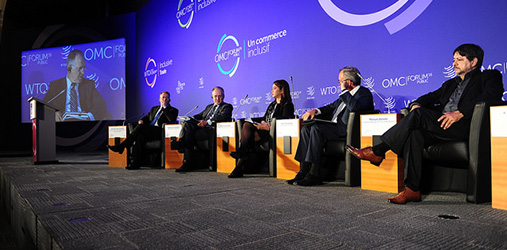
TIAs threaten the UN Agenda 2030
The Independent Panel on Global Governance for Health has just published a Viewpoint in the Lancet. This builds on the Lancet-University of Oslo 2014 Commission report on the political origins of health inequity, focusing specifically on the impact of trade agreements on public health.
The Panels' argument, in summary, is that TIAs, driven by corporate interests, are rewriting the rules governing trade and investments. They threaten to exacerbate the underlying political and economic drivers of health inequities in years to come. Not only do the processes of TIA negotiation routinely undermine democratic principles, their outcomes conflict with government obligations to fulfill the right to health under human rights treaties and contradict the commitments made to implement the UN Agenda 2030, which clearly spells out health—for all—as a global priority.
TIAs promote corporate interests
The Trans-Pacific Partnership (TPP) agreement, signed on Feb 4, 2016, and the Transatlantic Trade and Investment Partnership (TTIP) currently under negotiation, have generated a groundswell of opposition from politicians, civil society, and academics. Growing evidence suggests that they will have major, and largely negative, consequences for health that go far beyond those of earlier trade agreements.
This situation is particularly disturbing since the agreements have created blueprints for future bilateral and regional trade agreements: a rewriting of the rules that govern the global economy, promoting corporate interests at the expense of public health priorities. Recent agreements not only go beyond the WTO agreements in domains such as intellectual property, food safety, and trade in services, but they also extend to areas such as public procurement, disputes between corporations and states, and more.
Power imbalances and increasing inequality
- There is growing evidence that trade agreements widen inequalities in multiple ways, states the Panel in the Viewpoint. The rules disproportionately affect the poorest countries and low-income, vulnerable, and marginalised populations within countries.
- To counter these trends, a radical shift in policy and process is required to stop the intrusive provisions of these agreements and enable states to fulfil their human rights obligations to their citizens and pursue public health priorities.

